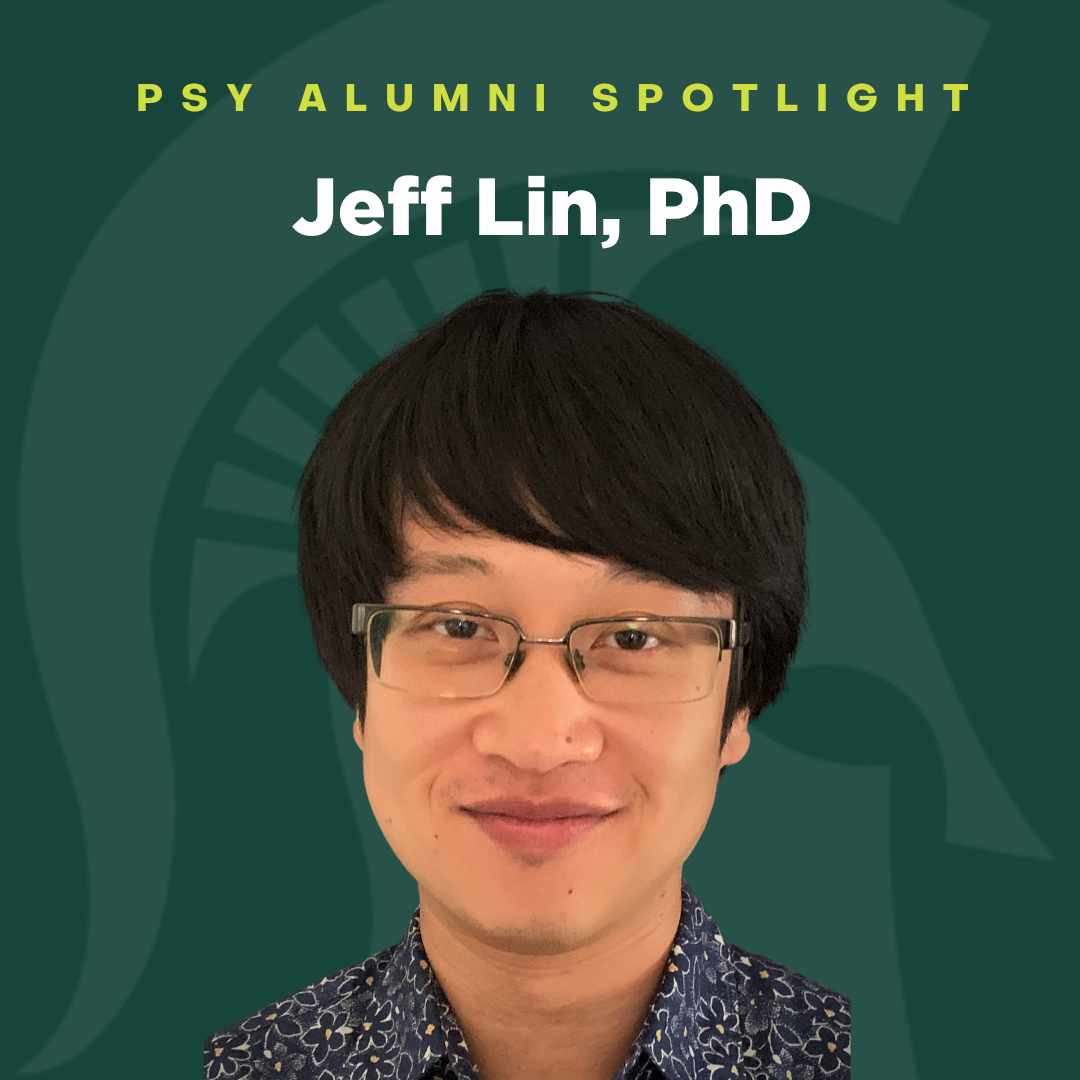Meet Clinical Science Alumni Jeff Lin
September 29, 2023 - Shelly DeJong

How did you get interested in researching mindfulness?
My undergraduate degree was in economics, so I found myself working in an accounting department in logistics and not being all that satisfied with what I was doing. One of the things that I was learning about in my spare time was Eastern Philosophy, Buddhism, and meditation. I was really attracted to the claim that there are ways to systematically train your mind to alter your experiences in the world. That really blew my mind, so I began diving into learning about these practices and traditions. I started reading scientific articles about meditation and saw that a lot of people were researching mindfulness and meditation. I wrote an email asking for advice from the scientific director of the Mind and Life Institute, which is an organization that supports a lot of mindfulness meditation research internationally. They kindly replied and suggested going back to school in Clinical Psychology.
I then found out that getting admitted into a Clinical Psychology program is quite hard, so I took classes at my alma mater, the University of Michigan, and got some research experience. That set me up to apply to work with Dr. Jason Moser, who was a very influential mentor for me. Dr. Moser didn’t identify as a mindfulness researcher himself, but he was very open to the idea since we had similar interests. He told me that he could teach me the basic research skills and how to use electrophysiology to probe how mindfulness practices affect the brain. And that's what I've been doing basically ever since. I’m still doing that type of work today.
Can you tell us more about your research?
Historically, mindfulness was assessed by looking at groups of participants to see how meditation affects outcome measurements at the beginning and end of a study period. Instead, I am interested in assessing individuals many times throughout the duration of their mindfulness practice. For example, for a big study I am conducting now, we record EEG 24 times over eight weeks with one person. This allows us to systematically track the brain changes that occur as you learn and practice mindfulness and link how these changes correspond to changes in mood and behavior.
We also have all of our participants complete two different types of meditation that have historically been jumbled up under the broader term “mindfulness meditation.” This allows us to see if these different practices produce different effects on brain functioning. It potentially allows us to answer the question of what type of mindfulness practices, and under what conditions, would be most beneficial to a particular person.
Has anything surprised you along the way?
Yes - that the effects of mindfulness practice depend on a lot of different factors. Mindfulness is a big umbrella term that encompasses a lot of potentially different psychological states. There's a difference between someone that's on a retreat that practices eight hours a day versus someone that's practices regularly 10 minutes a day. There's also a difference between formal (sitting meditation) and informal (being aware of your momentary experiences in daily life situations) mindfulness practice. And then there are personality characteristics. We're all different, so we might exhibit different kinds of receptivity to all of these different practices. These factors interact with each other, so it’s complicated to measure in the context of research. I'm interested in devising ways to systematically account for all these different sources of very important variability to help us develop a better understanding of how mindfulness broadly influences our brains and our psychological experience.
How did your education at MSU uniquely prepare you for your current role?
Oh, in a lot of ways. I think it helped me learn to appreciate challenges. There were moments certainly during graduate school where I felt like I didn't want to continue and there were other times where I felt like I couldn't. Nonetheless, supports were in place for me to persist, and I'm glad I did because I was able to really grow up in a lot of important and sometimes unexpected ways. It's difficult to grow without a challenge.
My time at MSU helped me identify the values that are important to me and what I want to prioritize. As I move into different phases of my career, it's given me an anchor and helped me see what matters and what doesn't matter. In the context of research, truth matters but people matter, too. You have to think twice if the advancement of knowledge is at the expense of people. It’s an honor to be a social scientist, it’s a privilege to be able to work with people and pay it forward. My time at MSU helped me understand that.
I really feel that the program is quite special--it holds a very significant and dear place in my own heart. It was difficult and challenging, but it was so meaningful.
What are five words to describe the MSU Clinical Science program?
Authentic, challenging, resilient, unique, good
Do you have any advice to current grad students on the journey?
Don't lose yourself on the way. Maybe you don't necessarily know yourself very well but use the experience to get to know yourself. It's so easy to get caught up in the day to day and what needs to be done and the milestones, but it's important to reflect on this experience, the good and the bad. To really help you to get a better sense of who you are. I know what it's like to be a student. I know it's challenging. There's all kinds of thoughts and ideas that you might have, but know that it could be worthwhile to persist.

